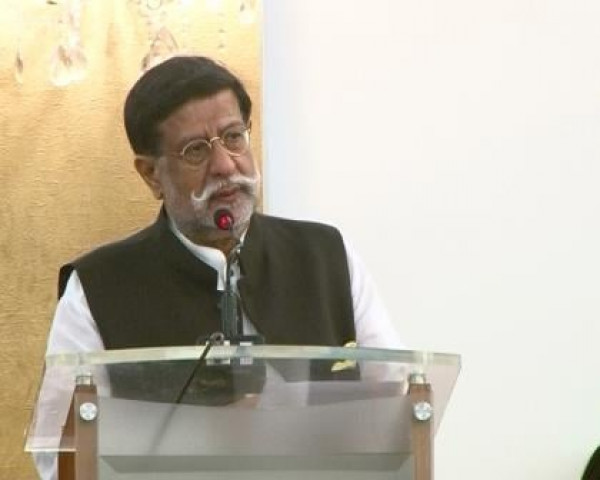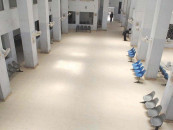Privatisation of SOEs to help ease govt’s burden: Soomro
Minister says govt has decided to privatise 17 national institutes

Federal Minister and Privatisation Commission Chairman Muhammad Mian Soomro. PHOTO: EXPRESS
“The government is focusing on privatisation under the directions of the prime minister and pursuant to the privatisation law to substantially minimise losses to the public exchequer,” said the federal minister while addressing stakeholders on the prospects of SOEs’ privatisation during a meeting on Friday.
The event was organised by the Privatisation Commission.
The event was attended by a large number of prospective financial advisers, members of major financial institutions, banks, asset management companies, members of brokerage houses and others.
Soomro said improving economic conditions were conducive for privatisation, adding that the government's privatisation programme would promote economic activities in the country and also provide new investment opportunities to the private sector.
He said the programme aimed at economic restoration and was an important part of the PM's economic agenda.
According to the decision of the Cabinet Committee on Privatisation (CCoP), the government started work on the privatisation of 17 national institutes. “Through privatisation, the national institutes running in losses will be provided better investment opportunities and with the introduction of advanced technology and corporate sector's better abilities, poverty can be alleviated and tax revenue increased,” said Soomro. “The government is focused on making the Pakistan Steel Mills and other national institutes completely active and put Pakistan on the path of economic progress.”
Soomro said the privatisation process would be carried out in a transparent manner as per the privatisation regulations, the Public Procurement Regulatory Authority and other laws. “Fulfilling the requirements of these laws is mandatory,” he added.
Soomro said the privatisation process was based on many phases to ensure transparency and the government had decided to privatise 17 national institutes and work on seven of them had already begun.
The Ministry of Privatisation, on the instructions of the PM and after the CCoP's approval, started privatisation of lands and properties of 32 government institutes.
He said the ministry had decided to privatise seven entities in the beginning 2019, including two RLNGs plants (2,600 MW).
“Relevant work has been completed and bidding will be done by the end of the current year,” said the minister.
Soomro urged the corporate and financial sectors to support the government in its privatisation programme and ensure its success and help Pakistan prosper economically.
Soomro said the PSM was not being privatized, instead “focus is on restoring it”.
“The State Life Insurance Corporation is an important institute and its profit and market share are declining which is a cause for concern,” said Soomro. “Providing the private sector shares of the State Life will improve its performance.”
Privatisation Commission Secretary Rizwan Malik said the transaction structure of the 1,223 MW Balloki power plant and the 1,230 MW of Haveli Bahadur Shah power plant will be completed within 15 days.
He said the due diligence for the sale of the SME Bank had been completed while that of Services International Hotel, Lahore was under way.
The government had included 10 institutes in the privatisation list, he said, adding that they were Guddu power plant, Nandipur power plant, First Women Bank, House Building Finance Corporation, Pakistan Reinsurance Corporation, Oil and Gas Development Company, Pakistan Petroleum Limited, Heavy Electrical Complex, Pakistan Engineering Company and Sindh Engineering Company.
By including these institutes, a total of 17 institutes had been included in the list. “The capabilities of the Privatisation Commission are also being improved,” he added.



















COMMENTS
Comments are moderated and generally will be posted if they are on-topic and not abusive.
For more information, please see our Comments FAQ